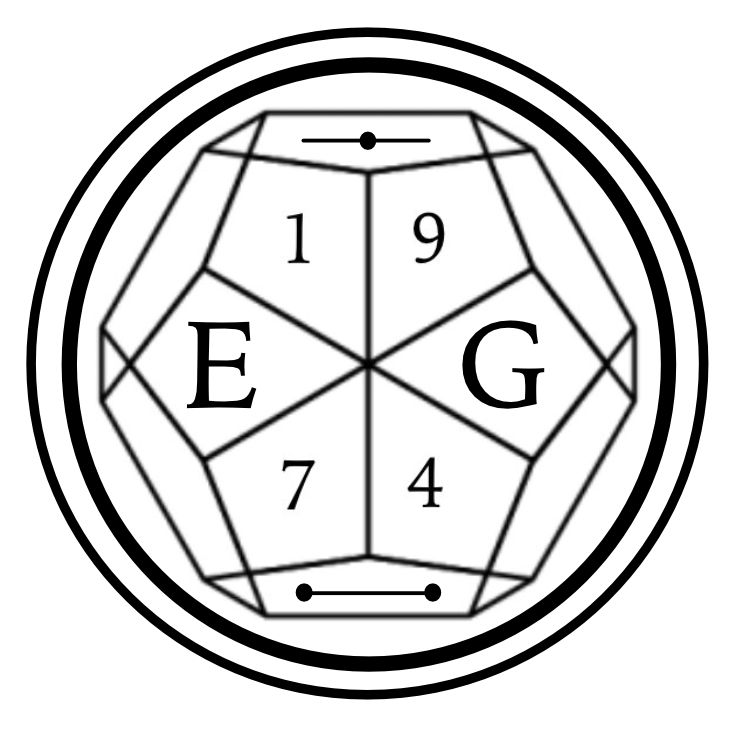In your opinion what’s the difference between the two? In my opinion both terms are frequently used interchangeably in the workplace.
But I’d like to consider myself as an engineer, because although I don’t consider myself to be good at it, I think I cares about the software that I worked on, its interaction with other services, the big picture, and different kinds of small optimizations.
I mean, what is even engineering?
Considering the almost complete lack of standards, certification, licensing in most areas of programming, I don’t think there’s a ton of difference.
I’ve held both titles without rhyme or reason between the two. Even in areas requiring high compliance - HIPAA, PCI/DSS, NIST Standards, FERPA, etc - training achieved doesn’t tend to be reflected in a programmer’s title. (Even while the same level of training turns into acronym soup among their IT peers.)
One way I try to live up to the title “Engineer” - even when I don’t wear it - is by holding myself to the Engineering Code of Ethics.
One of the issues is that devs don’t know about the normal engineering certifying body (at least in the US). One of the problems with that body was its expectation that a software engineer also know other forms of engineering. For example, a chemical engineer needs to know some civil and industrial engineering to get their certification. It’s almost nonsensical to ask someone building cloud apps to understand the principles of chemical engineering unless their work is in chemical engineering.
I know a ton of engineers that don’t view software as a field that can use the term because of its lack of certification.
Superb for including the Engineering Code of Ethics which I didn’t know exsisted! In my decades of working on every part of Computer Systems, Information Systems, unfortunately, I personally think if you work for Big Tech, you cannot abide those Code of Ethics. From the website>
Fundamental Canons
Engineers, in the fulfillment of their professional duties, shall:
- Hold paramount the safety, health, and welfare of the public.
- Perform services only in areas of their competence.
- Issue public statements only in an objective and truthful manner.
- Act for each employer or client as faithful agents or trustees.
- Avoid deceptive acts.
- Conduct themselves honorably, responsibly, ethically, and lawfully so as to enhance the honor, reputation, and usefulness of the profession.
How many Google Code Monkeys violate 1 or more of those on the daily? For instance in Canon 1, it does not say profit is paramount, but that public welfare is paramount. In fact, you could argue that is a competing objective working for Big Tech and following ethics.
Poorly defined nomenclature. Simple as that. I’m an “automation engineer”, have had many other titles, but anytime I write what I do, like LinkedIn or such, I write “programmer”, because it is simple, descriptive, and I like it. I’m old, but I used to like ”hacker” until it came to imply nefarious programming.
Poorly defined nomenclature. Simple as that. I’m an “automation engineer”, have had many other titles (…)
Anyone can call themselves what they feel like it. However, in some jurisdictions and contexts the title “engineer” does have a specific meaning, consisting of someone who not only has the necessary and sufficient training but also is a member of a specific professional body. These credentials have meaning and those who try to pass themselves off as one without having the certification or credentials might be breaking laws.
100%, but my understanding is that most often applies to fields of engineering outside of computer science like mechanical, chemical, structural engineering etc. But there are licensing bodies for achieving Professional Engineer of FE in some cases for CS.
I am not a lawyer but I presume most laws apply to claims of such certifications rather than job titles. In either case most people don’t pick their own job titles. Just don’t put PE, after your name, same as you should not just randomly throw BSN or MD unless you have a registered licensure.
It’s a huge faff, you will get a different answer from every person you ask. They’re used interchangeably, and it just doesn’t matter.
To entertain your prompt. Real world engineers (structural, etc.) aren’t entrusted the title because they “care” about what they build, it’s because they have to be correct, and as such, they follow extremely rigid process and take the time to never be wrong. Obviously I do not have real world structural engineering experience, but I think we can all agree on this from an outside point of view.
That’s not how software works most of the time, and it’s even heavily discouraged in a lot of the industry. We learn from failure, and the consequences of software failing are nil compared to the consequences of a bridge failing. This is a huge superpower of software, not a weakness, or some sign of deficiency. It is the key reason software evolves so quickly. Software engineers (or developers, alchemists, whatever) are allowed to fail, learn from mistakes, and improve. They can test completely new, never been done ideas, nearly for free, and nearly instantly.
Again, I don’t really care though what the industry wants to call it, developer or engineer. It doesn’t matter and it’s all made up anyway.
I quite like the term Software Alchemist.
To me, the words “engineer” and “developer” both imply that a well thought out and structured plan is in place for them to do their job. Not so with “alchemist”, which implies a fair amount of experimentation and uncertainty, both of which are very common in the software industry.
It’s always been one of my favorite ways of describing the job :)
deleted by creator
In a lot of places, engineering is a regulated field, meaning you need a certificate to call yourself an engineer. e.g. this lawsuit.
Guess im not an engineer in canada
but what if you are
A dev work on some code. It works, great, job done.
An engineer comes to see this work. It hasn’t been thoroughly tested, it only works on the dev computer in his coding environment. There is no documentation. There is no comments in the code. Half the features are missing because the story didn’t talk about them. Installing the “software” is made by hand and only one person knows how to do that. Some libraries are used with various licences, some are outdated, some can’t be maintained, some will download stuff on their own. Performances are shit. I certainly forget a lot of stuff.
Now the engineer will work to solve all these non code problems.
Now the problem is that software companies don’t care about engineers because they have managers. Managers will consider engineers like developers and ask them to work like developers. They will also tell the engineer that his lunacies are too time consuming, which means too expensive, so they will go in the backlog and be forgotten.
Yes I’m disillusioned and depressed about working in software development. It’s not like this everywhere. Some companies have an engineering culture. Especially when they come from older industries, like electronics or car etc. But I haven’t had the chance to work in one for 5 years now.
Holy shit can confirm. Am also fighting off some burnout or depression or both?
Get called out for being slow, yet their “fast” development time seems to be related to the projects we have to keep revisiting as they keep failing publicly 🤔
Like yea it needs to be delivered, but do we really want to be so careless with employee and customer trust? Also, wouldn’t there be value in keeping things structured well enough to be consistent with our delivery times?
I get that it can be polished later but later never seems to come. The tech debt just keeps stacking and I find myself being the only one scraping up the turds.
I feel like I’m being gaslighted sometimes…
I’ve seen this time and time again and it breaks my heart. In a Tron way, I wish all users could ingest this and then make reforms to the Industry. Profit at all costs makes users poor.
In my company everyone is called Software Development Engineer 🤷♂️
Well, if I remember my software engineering prof correctly, software engineering is mostly about bringing an engineering mindset to software development. You wouldn’t just slapdash an airplane together in a weekend and shove it out on the runway. There’s a process for making sure we don’t kill people with deadly flying contraptions.
Software engineering is that same idea applied to software systems. There is a process for making sure we do our job without causing undo harm. You wouldn’t want to just slapdash together something that has to be HIPAA compliant and has to meet other security regulations. You plan. You test. You revise. You ensure the product doesn’t publish the sensitive medical records of every patient on the front page before it ends up in production. That is the work of a software engineer.
That is the work of a software engineer.
To build upon this, we need to keep in mind that at least in some jurisdictions the role of a certified engineer is only required in projects with relevant size, and the responsibility of that engineer is to ensure the project complies with all requirements and therefore be held responsible for any mishap. This means that it’s perfectly fine if non-engineers work independently on complex tasks, provided that an engineer attests that their output is fine and takes responsibility in case it isn’t and it causes problems.
I really like this answer, because now I’m confident that I’m at least acting as an engineer. Thanks!
I think it’s just a “branding” difference. I was at a company once that changed everyone’s titles from developer to engineer. It was mostly done cause engineer was more hip.
I think developer was more used a decade ago. I would not be surprised if it cycles back at some point. It’s just like clothes fashion or whatever.
This whole thread was weird to read as a Canadian:
In Canada the title “engineer” is a legally protected term. You can’t legally call yourself a software engineer without going through the Engineers Canada accreditation.
You are a software engineer if you are an engineer in good standing. Calling yourself a software engineer without accreditation is fraud.
Edit: I was curious, so I looked it up. The exact same is true in the US:The title engineer is a protected title, that’s protected in law, and it’s been protected for over 100 years.Edit 2: Don’t believe everything you read online, lol. See below re: the US
I’m not sure where you’re quoting from, but as far as I can see, only “Professional Engineer”, “Licensed Engineer”, and “Registered Engineer” are protected in the US.
I fixed my comment above. Thanks for the correction.
Canadian Engineering Associations will actually get you for illegally labeling yourself an Engineer. I did a software developer program and after graduating a few people decided to start calling themselves engineers. The organization contacted each person individually and I belive the program coordinator. It is a serious title here, it is the same as a healthcare worker calling themselves an RN without being registered with the nursing college.
If someone flies the “software engineer” banner seriously, I expect them to have some theoretic knowledge besides the practical one. They would know different programming paradigms (procedural, OOP, FP), know about programming patterns, layers, UML, and at least a programming language or 4 (3 superficial, 1 in-depth).
A software developer can be any random code-monkey picked up from the street that is self-taught and/or had a boot camp of sorts. Nothing wrong with being self-taught or boot camps, as SDs need to eat, but it lacks a certain level or rigor I would expect from a SE.
If both had a certain amount of experience the SD would mostly catch up to the SE, in practice. Not sure if on theoretic knowledge too, but that depends.
I have been a network engineer with no degree for many years, but I did have a lot of certs. It’d be nice if there were something similar for programming. But I’ve never seen anyone care that much about the engineer title. I’ve always thought it’s someone who understands his craft/engine design in and out, but doesn’t design it himself. The architect designs it. The tech can perform documented solutions
This is probably the most well-researched piece of writing on the matter: https://www.hillelwayne.com/post/are-we-really-engineers/
NGL I think that’s a pretty crappy article. Very little of it is research, it’s just assertions and arguing his POV philosophically. He also gets basic things wrong, and says “civil engineers work on buildings.”
The research is the interviews he did with engineers. That sentence is obviously a simplification, especially since he immediately follows it with one about talking to a civil engineer who builds mines.
As a former civil engineer who now works in software, “software engineer” irks me. “Engineer” means you’re supposed to be licensed and you have a responsibility for the public good above your responsibility to your employer.
deleted by creator
Robert “Uncle Bob” Martin, author of several foundational texts, and coauthor of the agile manifesto provides one, which I think is good: https://blog.cleancoder.com/uncle-bob/2015/11/18/TheProgrammersOath.html
Very intersting! I’m not so sure about the oathiness of:
- I will make frequent, small, releases so that I do not impede the progress of others.
- I will do all that I can to keep the productivity of myself, and others, as high as possible. I will do nothing that decreases that productivity.
But I think the real oath impact there is:
- I will continuously ensure that others can cover for me, and that I can cover for them.
In Government work that, ^, is considered career ending.
I will improve upon this, thanks for the awareness.
Of course we don’t, otherwise social media/tobacco/petroleum industries wouldn’t exist.
This is seriously what’s missing from the software field. There is no rigor or responsibility
there is… but it is expensive and the tech is constantly evolving
Hah, my dad (electrical engineer) had the same complaint when I studied sound engineering 😂
As a former civil engineer who now works in software, “software engineer” irks me. “Engineer” means you’re supposed to be licensed
This really depends on the country you live in. In some countries you need a license, some need you to have some kind of university degree and others don’t care at all. So we cannot really use that measure as a definition.
This really depends on the country you live in.
Not really. There are two aspects to this problem: one is how people assign arbitrary and meaningless titles to themselves, and another is regulatory requirements by jurisdictions to be able to legally assume a role.
I can call myself senior dubstep engineer, and that’s perfectly fine. I can’t call myself a civil engineer and sign off on a construction project or a permit. No one cares if I’m actually a senior dubstep engineer or if I’m junior at best. In the meantime, you will get in trouble if you try to sign off on a construction project, no matter of how stubborn you are with regards to calling yourself an engineer.
another is regulatory requirements by jurisdictions to be able to legally assume a role.
This is exactly what I mean with “this depends on the country you live in”. Different countries have vastly different regulatory requirements. Taking UK as an example, you can call yourself civil engineer all day long without having to worry any legal consequences because there simply is no such thing as a licensing system for engineers.
Taking UK as an example, you can call yourself civil engineer all day long without having to worry any legal consequences because there simply is no such thing as a licensing system for engineers.
Britain’s Engineering Council disagrees.
https://www.engc.org.uk/international-activity/access-to-practise-in-the-uk/
Well idk the details in that specific case, this was just the first example I found. My point is, that different countries, states and institutions disagree on this matter. There is no universal rule that defines what you need to have achieved to call yourself an engineer.
As a former civil engineer who now works in software, “software engineer” irks me. “Engineer” means you’re supposed to be licensed and you have a responsibility for the public good above your responsibility to your employer.
This. I think some people don’t understand that titles are not whimsical status symbols and hold actual legal and regulatory meaning. A random guy can hold an engineering degree and not be an engineer, while a random guy with no degree can actually be a engineer if he jumps through all the hoops.
In engineering fields, being a member of a professional engineering body is critical to work in the field, because the main value proposition of these credentials is to prevent incompetent people from working on critical tasks which can potentially have important consequences to society if they are done poorly. For example, people can die if an engineer signs off on a project for a residential building that collapses due to shoddy work. If that happens then the engineers who signed off on the project will be investigated and if they are held responsible not only can they be held criminally responsible for their work but their license will be pulled, which is society’s response to ensure this problem won’t happen again.
And the criteria for which bodies are considered professional can often come down to government or capitalism, both of which are very flawed. It should come as no surprise that software developers, who tend to be anarchists(see: the existence of FOSS), are distrustful of statist and capitalist regulatory bodies.
“Engineer” means you’re supposed to be licensed and you have a responsibility for the public good above your responsibility to your employer.
Good point. We definitely don’t, and it’s what’s causing huge amounts of trouble in the world, rather than using software for the greater good.
But engineer sounds better by some definitions, and it strokes the ego of employees, so companies like to use it to give more prestige to the role.
Just to be clear, that is not exclusive to “engineering,” as other professionals have similar legal requirements (doctors, lawyers, fiduciaries).
More generally, on a personal level, people are expected to act with integrity, and we have laws that provide them legal protections for whistleblowing.
The actual practice of engineering is about problem-solving within a set of constraints. Of course the solution should not harm the public, and there are plenty of circumstances where software is developed to that standard.
When a PE stamps a plan, they are asserting that they personally have reviewed the plan and process that created it and that it meets a standard for acceptable risk (not no risk!). That establishes the boundary of legal liability. In software, we generally do not have that process that fits in a legal framework, but that doesn’t mean that professional software engineers aren’t making those assessments for life-critical systems.
For other kinds of systems, understand that this is a new field and that it doesn’t have the bloody history that got “real engineering” to where it is today. A lot of the work product of most software engineers just don’t have stringent safety requirements, or we don’t understand the risks of certain product categories yet (and before you try to rebut that, remember that “building codes are written in blood” because people were applying technology before it was well-designed/understood).
Anyway, “engineering” is defined by a lot more than if you or your boss has a stamp (and in point of fact, there are plenty of engineers in the US that work as engineers without being a PE, or with any intention of ever having the stamp. Are they real engineers?)
I hold an M.Sc. in software Engineering and it is not just a “software developer” but an actual masters degree from an engineering university. It’s a civil engineering degree with focus on software and systems that runs software (e.g embedded systems). It is a protected title by law in many countries. I think Americans started abusing the software Engineer title a decade or two ago and hence many think it is just a title anyone can use as they like.
Removed by mod
Not sure what you mean about your apples and pears comparison thing. Around here we have two levels of engineering - diploma engineer and civil engineer and that’s also the title you get.
Due to some countries not understanding this differentiation, we use the more common B.Sc for Diploma and M.Sc. for civil. You can then specialize in different areas like software, electronics, AI, health tech, and many more. So basically we have all the engineering courses + the special courses on top.
I am in my first job that’s a full-on “software engineer” title, which is a move I wanted to make. However, leading up to it I have a 20 year engineering career covering various aspects of electronics as well as software.
What I work on is C/C++ that runs the company’s main industrial product, and not some more mainstream web or app development. So it’s software work as part of a multidisciplinary team to design or improve a physical product.
So for those reasons I only think of myself as an “engineer.” But I can totally see how other jobs using similar skills would be more “software dev” or even “I’m in IT.”









